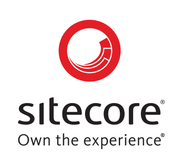Sitecore Experience Platform Pricing Overview
Sitecore Experience Platform Alternatives Pricing



Sitecore Experience Platform Pricing Reviews
It supports user personalisation Create user personas on the basis of site analytics Suppose drag-and-drop feature for site editing Next generation CMS capabilities Supports headless mode Extremely scalable
The cost is too high for any enterprise. Finding a developer for site core is very difficult. Very costly to develop a website on sitecore. Limited compatibility with other external systems.
Out-of-the-box web analytics. User personas and details. Complete user journey provided out of the box. Easy to use and extremely scalable.
Sitecore has quite a better supply of out-of-box modules and features which can be configured reasonably quickly to suit business demands without too much modification. This also helps pace up the demand. Sitecore has the ability to provide on-site networking or cloud hosting for satisfying various needs of customers, but they also have recently heavily promoted their cloud-based networking. It's in accordance with the marketplace and is quite useful for companies which are not going to add another commodity to the program portfolio that their existing internal IT departments continue to handle.
Sitecore does have a competent content editing Interface. While this User interface is efficient enough, several other commodities in this area seem to offer more elegant UI for editing. Sitecore will do more to provide an incredibly simple interface for editing. It'd be great to have a professionally operated Sitecore hosted rather than a cloud only. The price is more on the expensive side of things. Giving the cost structure a little more difficult to justify.
Sitecore could be a nice choice for a business that needs some premium product but is just trying to use the framework for integrated online marketing tools. If an organization is not advanced enough to make use of everything that Sitecore is going to provide, or is merely searching for a CMS, then there are many other choices that could be of greater benefit.
Because Sitecore is such a powerful platform on which you can develop whatever you can dream up, every time we've said "I wish we the CMS could do [whatever]," we've realized we could develop or configure it to do just about anything we want. This is a great benefit of the product. However, that also means that we are having to do a lot more development and tweaking than we have with other CMSes. You can do just about anything with it, but you will have to plan to develop it: templates, mobile responsiveness, SEO implementation, workflows, etc. We also like many of the advanced marketing analytics, campaign, and personalization capabilities and are looking forward to using these features – but we have not utilize them much yet. These were some of the features that led us to choose the platform. Note: We are new to Sitecore and in the midst of transitioning a large University website and intranet to it, so my comments are coming from the perspective of a relatively new customer (≈ 1 yr owning the product). But I experience with many other commercial and open source CMSes over the last 20 years, so feel I have a good understanding of how the product compares to others.
There can be a steep learning for Sitecore, especially for those coming from WordPress or other CMSes targeted at a simplified content editor experience. The application seems to be making strides in the area of user-friendliness, however. The 8.0 update and Launchpad UI is much less intimidating for new users. But the Content Editor experience can still be intimidating for new users and the Experience Editor can also be complex and confusing for inexperienced editors. Also, because Sitecore is a proprietary, commercial, enterprise-class platform, it is not as easy to find and acquire plug-ins/extensions and some of the best ones available can be pricey. Likewise Sitecore developers and content editors with experience on the platform are also harder to find (though a good .NET developer should be able to learn Sitecore quickly). Sitecore seems to be gaining momentum, however, so this may be changing.
Moving public website and creating completely intranet on the platform for a mid-size, private university. Approximately 5,000 pages being built across the two sites, coordinating with around 500 business users.
We've been using Sitecore for about a decade now, and it's proven it's it's value through and through. Our favorite thing about it, is the way it brings together tech and marketing teams for deeper collaboration on what a website should look like and do for users.
Due to the complexity of the solution, it's not easily accessible to customers in terms of building on the platform. Many customers still find it hard to maximize on the actual full benefits of the platform, and tend to plateau soon after just migrating from whatever solution they were using previously. It takes time and commitment to really leverage what Sitecore has to offer, and most customers feel some impatience around seeing results faster (whether that's in the form of conversions or otherwise).
The most common problem we solve using Sitecore is tapping into users that were not previously identified as a target audience; as well as bridging the gap and dependency between marketing and tech. The benefits we've seen are related directly to increasing sales, streamlining workflows (internal processes), as well as automating a lot of the work that's done on/through the site.
SiteCore is a big machine. This tool is one of the heaviest and expandable CMS (Content Management System) I've been working on. Everything car be done but requires most of the time specific developments. It means that a SiteCore project costs a lot. If your Company has a Website Project, eCommerce, Corporate and so on, SiteCore is an option. What I like the best in SiteCore is its flexibility. Nothing is fixed. Your solution can always be improved through many assistants. And if standard CMS features doesn't fill your needs, then your can explore Marketing extension, search engine optimisation options, emailing system add-ons and much more. The roles management is also very very powerful. You can fine tune each profile or manage them by group. One of the best feature we are using is the font end page editor. In it, a user with the correct rights will be able to place, within an predefine layout, components in different place-holders. It's very very convenient as soon as you need to add new pages with specific contents. To finish, i would say that SiteCore is not easy to learn to use but it serve the purpose. There are too many features to being able to describe them, but the key I appreciate are are there.
It's complex, not really user friendly and not easy to learn. Its an heavy tool, meaning that when you want to deploy a SiteCore solution, it can't be done like if you want to deploy a Wordpress Blog. It requires a lot of parameters, a dedicated IT company to manage the dev project, a team in your company to handle the project as well, and time. The probably most disliked aspect of SiteCore is its user interface. Old fashion, and too complex, it's a real cons for users used to do everything on nice interfaces. There are pros and cons, but SiteCore should be considered only for big Websites and for companies with large internal IT and Communication team. Lastly, the cost. It's not free at all. In addition to the IT external company needed to setup the initial solution as well as to do any update, the SiteCore licence itself is expensive.
We had to find a solution that allows us to publish thousands of contents through several main websites as well as in different language. To stay flexible, we have imagine a Tagging solution that let us, basically, specifying in SiteCore that we want to display in "This" page contents tagged with this keyword and this keyword. An easy to understand the concept is to imagine a recipient page, used to display news on our french office website. SiteCore will dig into our silo of content and will display all the ones tagged "News, French, ...". This very flexible approach requires to be strict and rules on how to use tags. This is an internal process.
I suppose if your developers are VERY skilled at configuring Sitecore, if your editors can live with the editorial experience, and if your business doesn't care about the monolithic construct that is Sitecore, it is sort of practical to have everything under one roof. Provided of course that it works better for you than a best-of-breed, composable approach.
Most of it, I'm afraid. First and foremost I truly loathe the lack of editor focus displayed by the product. Even when you go for (and spend countless hours developing) an in-page-editing experience, the editors are confused by the mix of in-page/WYSIWYG and panels brought in from the Sitecore backoffice for picking content/media/you name it. And if you rely purely on backoffice editing, things go from bad to worse. The backoffice does not cater at all for editors. It is very functionally driven, and there are seemingly no useful extension points for tailoring the editorial experience, i.e. to create custom editors for complex editorial needs. I also really dislike the monolithic approach of suite-based products. I have yet to see it create more value than hand-picking products that suit your business needs perfectly, and stitching them together in a composable architecture. The deployment and required infrastructure for Sitecore is an absolute nightmare, compared to the alternatives - particularly if you compose an architecture based primarily on SaaS products instead. Developer productivity is quite low in comparison to the alternatives.
Sitecore solves the same problems as any other suite-based product, namely having everything under one roof. This however comes with the price of complete vendor lock-in and making you work for the product/the way the product wants you to work, instead of picking products that work for you and in the way you want to work.
SiteCore is easy to use, has incredible functionality to integrate with third party applications and tools. The ability to build over a base product and ease of integrations is the feature I like best.
The pricing model isn't consistent across implementations. I would have liked to see this product have a stronger sales team and support.
Building websites and e-Commerce platforms for our end clients. Integrating the SiteCore engine with an Intelligent Campaign management system and web analytics
Easy to plan components into the layouts
Not very business friendly. IT has to still use Sitecore for content management needs. Business does not see the value of Experience editor. Cost prohibitive with cloud license.
Ease of content management and updating


